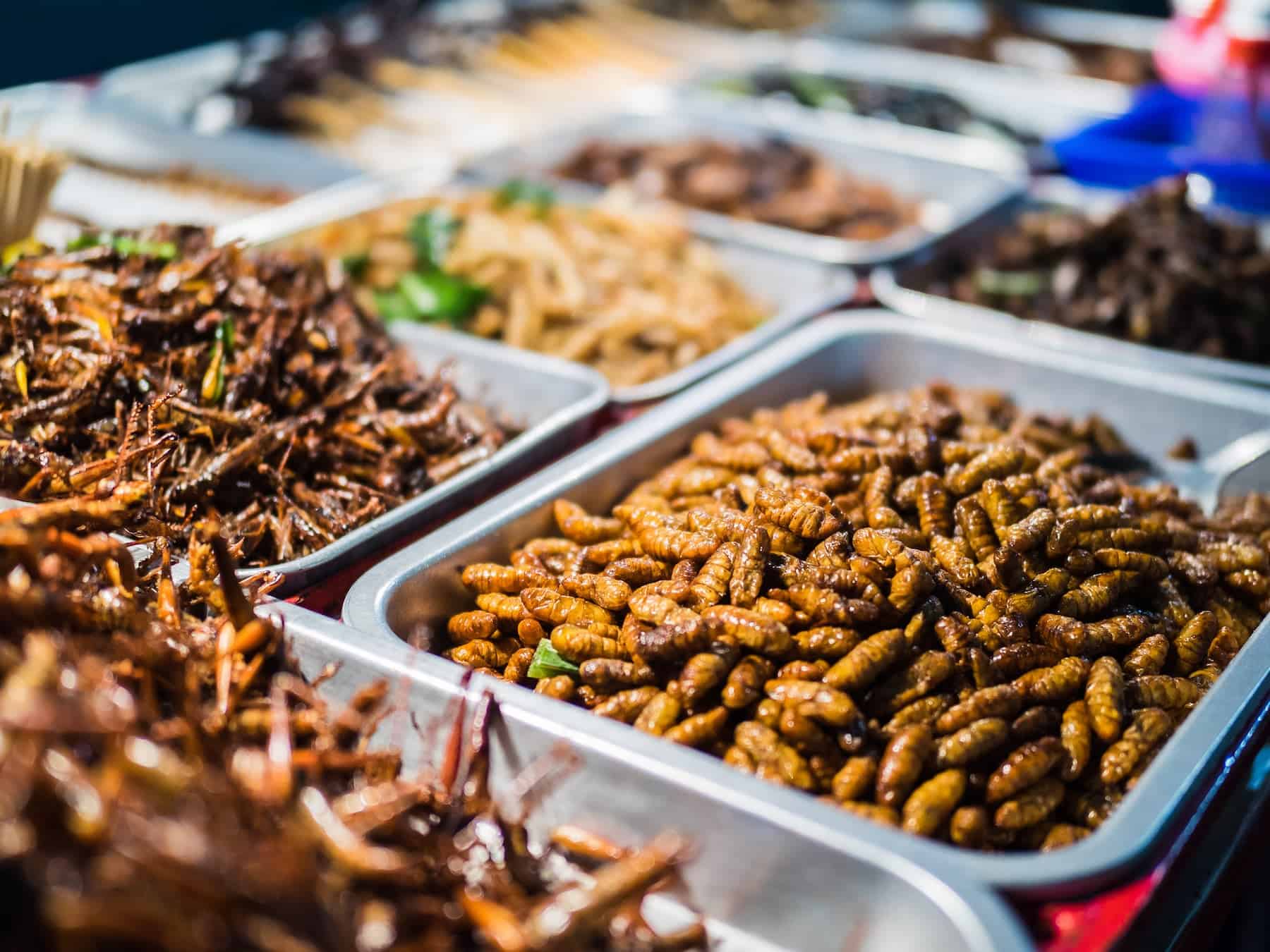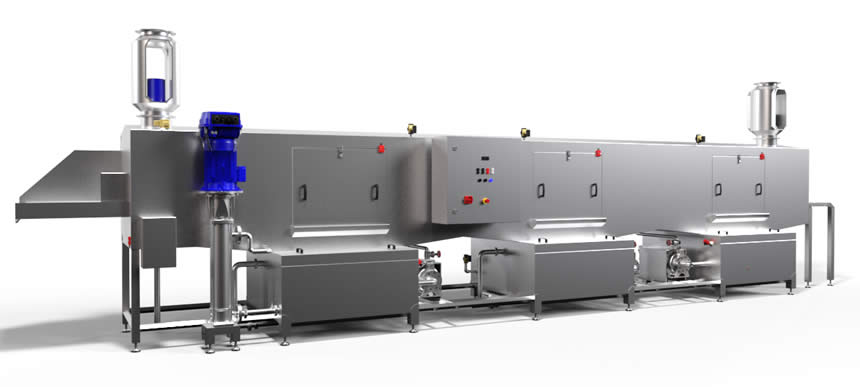
IWM is ready for supporting insect protein processing
When it comes to industrial washing systems, you can trust Industrial Washing Machines Ltd to provide you with a solution. At the time of writing, the Earth’s population stands at 7.7 billion and counting – you can check the population clock here for an updated figure. Some sources believe that by the end of the 21st century the world population will expand to a whopping 12 billion people. Most of these living in developing countries where food scarcity is already a problem.
Sustainable food manufacturing
To pre-empt global-scale food shortages, scientists are looking for sustainable solutions. Alternative protein sources are urgently required as the land area currently available is not sufficient to satisfy the growing demand for food. In particular, for meat. The result is that insects are now likely to become the new miracle ingredient in the food and animal feed industry. This is mainly because of their many environmental benefits when compared to meat production.
Among the hundreds of different insect species, the common cricket is the most frequently used for human consumption. The cricket is one of the most nutritious edible insects, and in many parts of the world crickets are consumed dry-roasted, baked, deep-fried, boiled or as a powder of dried and ground crickets, which is easily integrated into many food recipes. Crickets are commonly farmed for non-human animal food, as they provide much nutrition to the many species of reptiles, fish, birds and other mammals that consume them. Crickets are normally killed by deep freezing, when they feel no pain and are sedated before neurological death.
Animal food production
As well as being a promising ingredient in food for human consumption, insects are also expected to become increasingly widely used in animal feed. For instance, fly larvae can replace the fish meal, which is currently used in animal food, as it has a similar aminoacidic composition. It is possible to formulate the fish meal to increase unsaturated fatty acid. Wild birds and free-range poultry can consume insects in adult, larval and pupal forms while grasshoppers, moths and houseflies are seen as useful feed supplements for poultry. At IWM, we have already designed and manufactured specialised industrial washing systems for a local food production company. The company breeds larvae for animal feed production. The larvae is then dried and processed into specific high protein food for animals.
Washing systems for the food industry
But including insects into our diets (and those of our pets) comes with its own caveats. For a start, it may be that some people are allergic to certain types of insect but don’t know it. Safeguarding against such health risks must, therefore, be carefully taken into consideration. New manufacturing practices, labelling, certification and legislative frameworks will have to be created to accommodate these new foods.
It is possible that insect-based food manufacturing will require updated hygiene options for equipment. This includes mixing bowls, moulds, utensils and trays used in food production and transportation. Specialised industrial washing systems will support this requirement. Crate and basket washer and drying systems, rack washers, pallet washers and purpose-built cabinet utensil washing machines will perhaps have to be developed to accommodate the new textures and substances.
Industrial washing systems
Manufacturers of washing and sanitising equipment will have to produce design-led industrial washing systems. These will offer outstanding flexibility combined with energy efficiency features. Here at IWM, for instance, we design equipment from the ground up to be energy-efficient. Minimising the use of electricity, water and detergent, has led to extremely positive feedback in the export markets and within the equally important UK home market.
For now a ham sandwich and a packet of crisps are my preferred lunch. However, in the future this may have to change to larvae on a stick with a cricket side salad. And however things turn out, IWM engineers have the know-how and the creativity to produce innovative designs that work for evolving food manufacturing practices.
If you would like to find out more information about our industrial washing systems, head to our website today. Alternatively, you can call us to speak to a member of our helpful and friendly team.
If you have found this blog helpful, you may wish to read our previous blog on Industrial Washer Machines.

